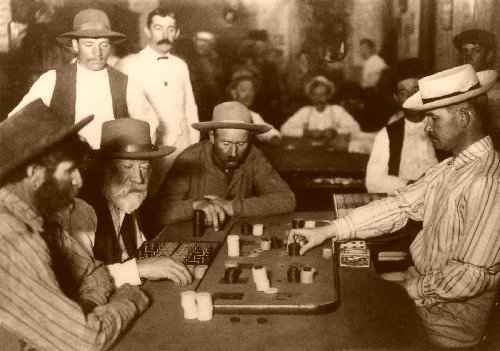Games Brittania
I watched a programme that dived into the history of board games. It focused on their origins and the effects they have had on our cultures over the centuries.
The presenter of this was a man named Benjamin Woolley who started by saying he grew up with board games and some of the memorable experiences he has had based around them.
Benjamin is a Historian and was inspired to look into a game that was found in an excavation in Stanway that was surrounded by mystery. It seemed to appear to be a centre piece of the presentation and their was a piece in the middle of the board when it was found. This has caused some speculation to what the game was and how it was played.
Benjamin took this to Irving Finkle an expert in this field, he concluded that this was likely to be a war game of some kind involving strategy as their was no dice and only the pieces involved. Irving had the idea the person may have been a priest and used this game to try to determine the will of god eg will the king win a war.
From this meeting Benjamin went on to explore how games throughout history has had an impact on religion and cultures around the world. They were visual means for looking at abstract thought. A good example is how games commonly used numbers and numbers where a way for people to try and understand the universe. Benjamin comically said how if Hitler had of played Risk he would have realised that attacking Russia while trying to attack Europe would be a bad idea. People often say , "It's just a game", but these revelations about how we have learnt valuable lessons from them would prove otherwise.
There was an interesting section of the programme that spoke about people's philosophy of life and how games relate to them. There was an example using three wise men that have different views on Life and how fate is decided. One of them believed that it is down to luck, he is called a fatalist and therefore dice games are the closest to resembling life. The second believed it was skill that was important and so Chess would be the closest. Thirdly we have the person believed it was the mix of the two and so Backgammon would be a good example.
The main reason the human race play games is that we have the capacity to get bored, we play games to pass time. In a church that Benjamin visited there were markings on the steps where people would play while they had to wait. A popular game that was found commonly throughout these marking was 9 men's morris, this is similar to a naughts and crosses and shows that they haven remained popular throughout the ages.
The way that games effected religion actually went hand in hand with the way it effected culture in the 18th and 19th century. Dice were looked at as things used to try and workout the will of God and therefore should not be used in something as trivial as a game.
Hazard was a game that involved dice as well as gambling and therefore was highly frowned upon by certain areas of culture at the time. As people were winning and losing money based on the outcome of dice rolls and having to spend more to stay in the game , ways of manipulating the rolls were discovered and many cheaters started to try and win money this way.
 Gambling however became a popular genre within the upper class community. A lady Benjamin spoke to theorised that many rich and powerful people were born into the wealth and therefore considered themselves lucky, they were not as accustomed to risk and so they were more likely to gamble and spend vast amounts. There were a few examples of where wealthy people became bankrupt and some had to flee to get away from debt collectors. The popular game of this era was Faro which is considered to be a simpler version of roulette.
Gambling however became a popular genre within the upper class community. A lady Benjamin spoke to theorised that many rich and powerful people were born into the wealth and therefore considered themselves lucky, they were not as accustomed to risk and so they were more likely to gamble and spend vast amounts. There were a few examples of where wealthy people became bankrupt and some had to flee to get away from debt collectors. The popular game of this era was Faro which is considered to be a simpler version of roulette.
In 1845 a gaming act was introduced as a means to regulate gambling, one of the things that pushed this was a murder case in which the a man was killed by his gambling associate over a £300 bet. Their was a lot of public interest after the man was found guilty and hung. Pamphlets were given out to spread social awareness.
Benjamin went on to talk about Goose. This was a family friendly game that focused on teaching people morality through rewards and penalties. Many people attempted to mimic this game and fueled the industry to become commercialised. Companies began taking ideas from colonies and changed rules and ideas according to what they thought would sell. Snakes and Ladders, Ludo and Chess were all examples of this.
Chess had different rules and pieces throughout the world until a tournament was held with one rule set. These were then used universally and people still compete to this day. As it is strategy based it was regularly used to train troops in the hope it will improve their strategy skills.





Hi Phil,
ReplyDeleteIt's good to see an example of copious note-taking appearing on the blog so soon after the session. Good work -- keep up the momentum!